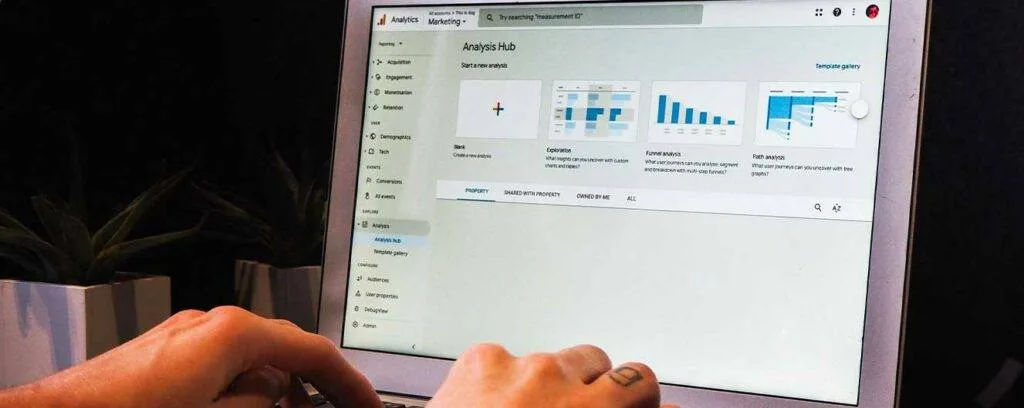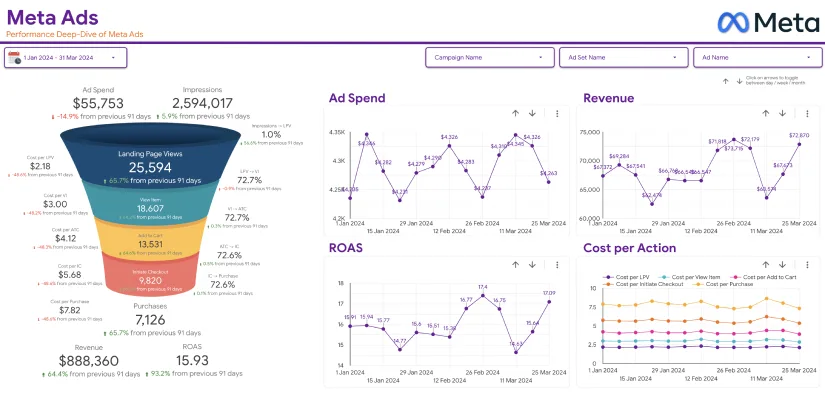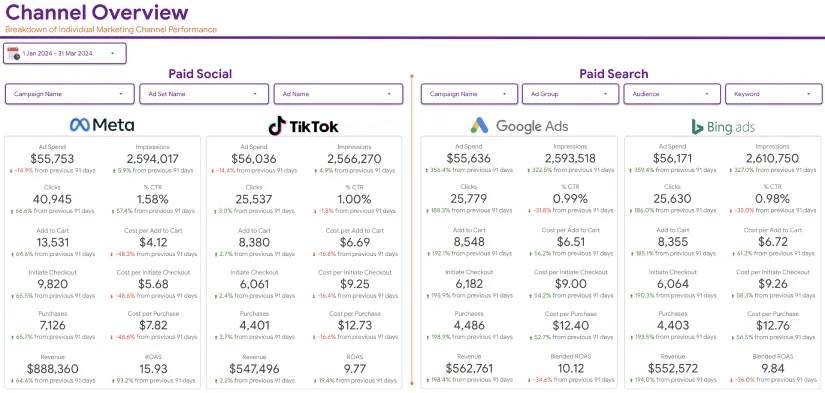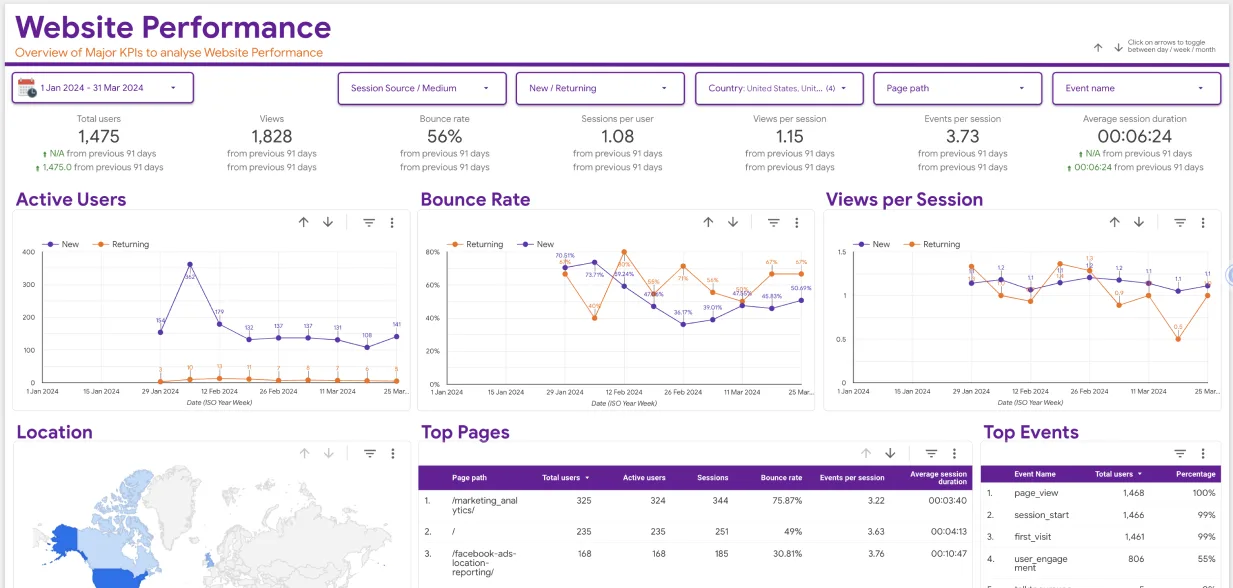As a marketer, you need to know the types of social media analytics you can rely on to comprehend and enhance your brand’s online presence. These analytics can help you figure out why one of your posts on Instagram went viral while another didn’t. You can also use social media analytics to predict the type of content that will hit your audience’s sweet spot.
Social media analytics is the guiding compass every influencer and marketer needs to sift through the massive engagement and interaction data. With proper use, you can discover patterns, measure user sentiments, and gauge the impact of your online campaigns. You can gain insight into your content’s performance, know what your audience thinks, and where to make changes to strengthen your social media game.
However, if you’re pretty new to the world of social media analytics, the massive jargon and data can overwhelm you easily. No need to worry though, because this post gives you a solid grasp on the four most important social media analytics and why they matter to your strategy.
What Is Social Media Analytics?
Just like marketing analytics, social media analytics involves collecting data and analyzing it to understand user behavior, opinions, and preferences. But you do this for the social media platforms on which your brand has a presence. It’s the only way a business gets to understand how their audience engages with their brand on social media.
Businesses today make use of social media analytics to keep tabs on key social media metrics like click-through rates (CTRs), engagement rates, and follower growth. For instance, you can use these analytics to monitor the number of comments, shares, and likes on your Facebook post to gauge your audience’s interest in your products or services.
Why Should You Care About Social Media Analytics?
So, why should you bother about social media analytics if your posts are getting a few thousand likes? Well, if you’re simply posting on social platforms without a clue about what your audience likes and what’s working, you’re simply flying blind. And that’s dangerous for a brand’s growth, but social media analytics can help you tread with confidence.
The four types of social media analytics that we’ll discuss shortly give you cold, hard data about the performance of your content. They also reveal what your target audience loves (or doesn’t love). In short, relying on social media analytics is the same as having the ultimate cheat sheet for creating posts that hit all the right notes.
Tracking these analytics helps you:
- Understanding which posts are making waves and which ones are sinking without a trace.
- Tweak your content to reach your audience and speak to their hearts directly.
- Identify important trends early enough so you can adjust your strategy to stay on top of your game.
In short, social media analytics are not only good for data nerds; they’re important for any brand that wants to enhance its social presence. It’s one of the best ways to convert casual scrollers into fans. And let’s be honest, in the competitive world of digital marketing, every marketer needs every edge they can get, right?
Types of Social Media Analytics to Keep Up With
Back to the main business. There are four essential types of social media analytics you need to concern yourself with to be successful in your social media strategy. Let’s look at each and how it contributes to you achieving your goal.
1. Descriptive Analytics: The What Happened?
Descriptive analytics is the type of analytics you seek when you want to know what happened. Think of descriptive analytics as the box score after a sports game—it’s all about the numbers! It pulls out the hard social media data, such as how many likes, comments, or shares your past rack up.
Sure, knowing that your last Facebook reel garnered 3k likes is fun, but there’s more to that than the bragging rights. Descriptive analytics builds the foundation for understanding how your social media content performed overall. It keeps track of metrics like engagement rates, follower growth, impressions, et cetera.
This type of analytics helps you understand whether your content resonates with your target audience and which posts get the highest interaction, or collecting dust.
Why Descriptive Analytics is Useful
Descriptive analytics provides a crystal-clear snapshot of the performance of your social media efforts. It also reveals to you the emerging trends in social media platforms. So, without it, you’re literally flying blind.
2. Diagnostic Analytics: The Why Did It Happen?
If say, your Instagram reel tanked, wouldn’t it be great if you knew why so you can avoid whatever caused the failure? Well, diagnostic analytics is what does the job of answering why. It helps you figure out why your reel didn’t perform as you had hoped so you can make amendments to improve your next reel.
Diagnostic analysis can tell the why by assessing the patterns and correlations. Maybe you posted at the wrong time, the hashtag you used wasn’t catchy, or maybe the reel missed what your audience relates with. This type of social media analytics can help you pinpoint the reason for failure or success so you can avoid or replicate them in the future.
Why Diagnostic Analytics Is Useful
Diagnostic analysis investigates the root cause of an outcome and allows you to make informed decisions when making changes to your strategy.
3. Predictive Analytics: The What’s Going to Happen?
Now that you’ve understood the what and the why, it’s time to pull out the crystal ball and look into the future. As a social media campaign manager, you’d want to be able to tell what’s likely to happen in the future. That’s the work of predictive analysis, using the data you’ve collected to forecast behaviors and trends.
Predictive analysis uses data from your past performance to estimate what level of engagement your posts are likely to get. It can also suggest optimal times to post as well as predict how a new content type is going to perform.
Why Predictive Analysis Is Useful
When you know what’s ahead, you can act accordingly to suppress or augment the outcomes. Predictive analysis lets you stay ahead of the game by eliminating guesswork in your strategy. It allows you to make data-driven decisions about what’s going to give you the best outcomes according to past performances.
4. Prescriptive Analytics: The How Can We Make It Happen?
Predictive analysis is where things start to get exciting because you’ll be figuring out how to make your predictions happen. It offers you actionable recommendations based on an in-depth analysis of your social media campaign data.
For instance, predictive analysis might suggest that you schedule your next Instagram stories between 7 p.m. and 9 p.m. This is the time when most users are active so your stories are more likely to get a higher engagement rate. With this type of analytics, there’s no room for guessing in your strategy. Instead, you’ll be using a defined roadmap to achieve the desired social media success.
Why Prescriptive Analysis Is Useful
Prescriptive analysis is important as to gives you clear, actionable steps to enhance your efforts and get closer to your social media goals.
5. Sentiment Analytics: The How Do They Feel About Us?
Another important addition to the types of social media analytics is sentiment analytics, which acts like a mind reader. This type of analytics goes deep into the tone of conversations around you to find out if people love you, dislike you, or are just torn between. It does this by analyzing the comments, reviews, and mentions to determine your audience’s emotional temperature.
Imagine if you launched a new product, posted it on Instagram and the comments get flooded with excitement and praises. That’s amazing, but sentiment analytics lets you know when a storm is brewing. If the number of negative comments keeps soaring, sentiment analytics can help you know and get ahead of the issue before it becomes a full-blown PR nightmare.
Why Sentiment Analytics Is Useful
Sentiment analytics helps you gain a deeper understanding of how your audience feels and what they’re saying about your brand. This gives you the chance to make adjustments and engage them to rebuild your brand perception.
6. Competitive Analytics: How Are We Stacking Up?
As you already are aware, social media marketing is all but a race where everyone is looking over their shoulder to know what the other party is doing. Competitive analytics helps you track how your social media efforts stack up to your rivals.
Do you want to know if your biggest competition is making a kill with memes as you’re still finding your way on TikTok? With competitive analytics, you can get useful insights into the secrets of your competition. You’ll also get to know what’s working for your rivals and the sectors they’re falling short on.
Why Competitive Analytics Is Useful
Competitive analytics helps you spot opportunities and up your game against your rivals. It simply allows you to capitalize on gaps in your niche market.
Conclusion: Leverage Social Media Analytics to Understand The Game
Social media marketing is a game where every player competes against each other to bag the highest engagements and success. To win this game, you need social media analytics to know what’s working, what’s not, and where to improve to stay ahead of the competition.
With these six types of social media analytics, you can easily transform your social media strategy from good to jaw-dropping. You can do the seemingly impossible, from tracking your performance to predicting the future. These analytics empower you to optimize your every move, so if you seriously want to drive growth, engagement, and conversions, leveraging these social media analytics is crucial.
If it all sounds like a lot to juggle, let Eaglytics Co. help you make sense of all your social media data analytics. Get in touch with and receive expert insights and tailor-made solutions to transform your social media game.





